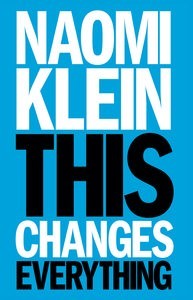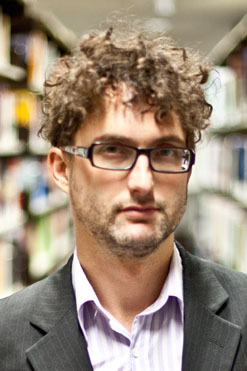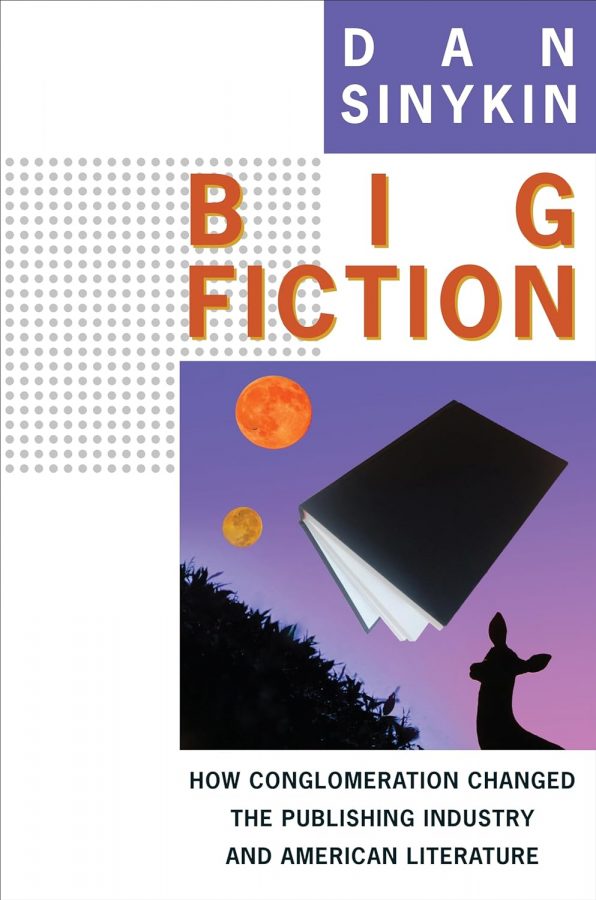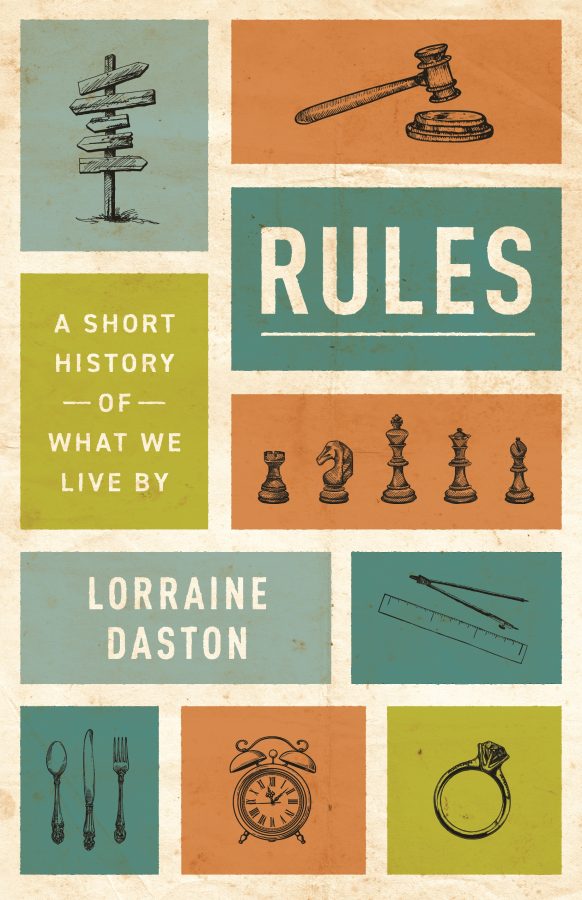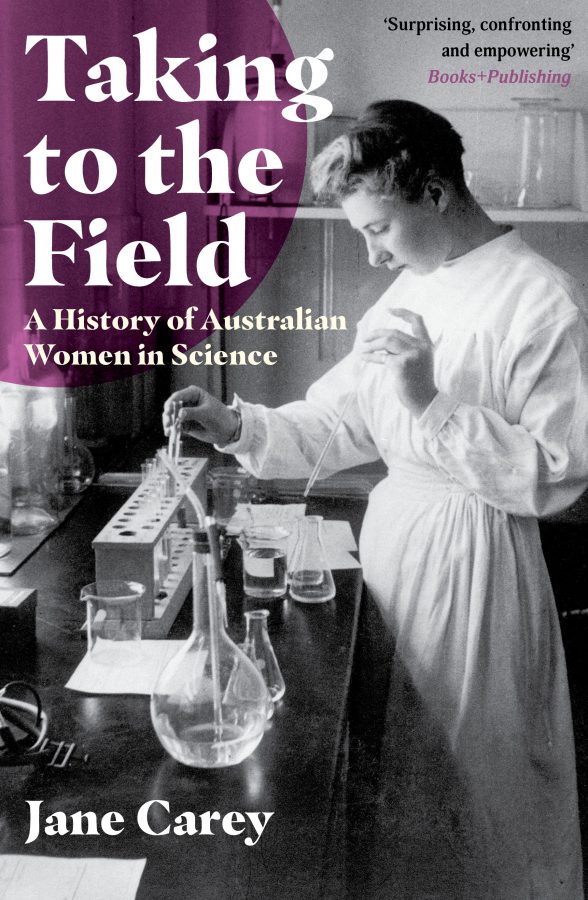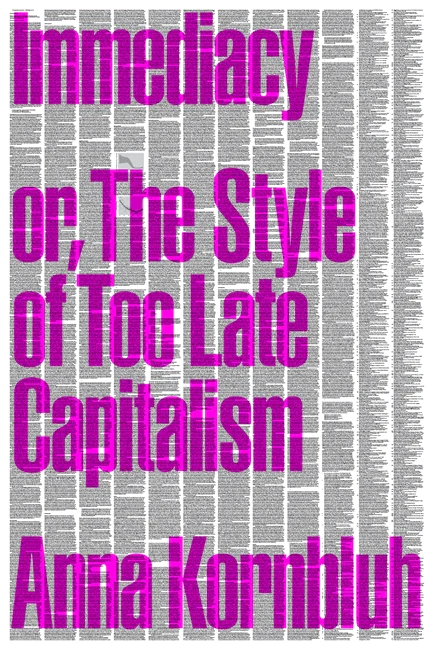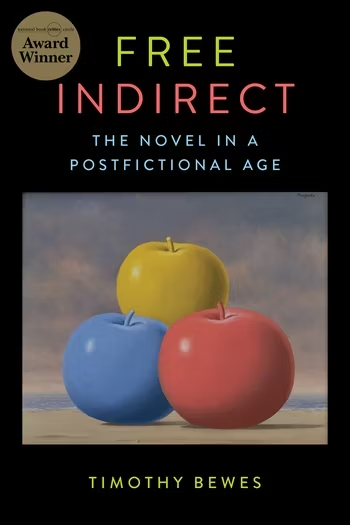A glimmer in the darkness: This Changes Everything: Capitalism vs the Climate by Naomi Klein
In 1712, a Englishman named Thomas Newcomen built a most unusual ‘engyn’ on the estates of Lord Dudley, a Staffordshire grandee. It must have struck local peasants as a rather dangerous contraption. Fed by coal, belching smoke and steam, the amazing machine seemed likely to explode at any moment, as indeed many of its predecessors had – the steam engine being at that stage of its development an imperfect design. The engine was, nevertheless, a marked improvement on the ‘engine to raise water by fire’ invented by Thomas Savery, whose pioneering work – overshadowed by his more famous successors Newcomen, Matthew Boulton and James Watt – is little recognised today. In his 1702 pamphlet, The Miner’s Friend, Savery speculated that the new device might have wide applications:
I believe no ingenious person will deny this engine to have the preference in all respects, being of more universal use than any yet discovered or invented.
Early steam engines featured a round boiler that burned coal to generate steam. That steam drove a great piston inside a cylinder. The piston was connected to a pump, which could be used to suck water from a mineshaft – then as now, a huge problem in soggy places like Newcomen’s home county of Devon.
You can see several working replicas of Newcomen’s device in England today. There is one on display in Dudley, which was painstakingly constructed by the Black Country Living Museum in 1986. It looks like a large brick barn with a wooden pumpjack poking out one window. There, in its essentially original form, stands the origin of entire industrial revolution, condensed to a single machine.
A working replica of the Newcomen steam engine, Dudley, England. © Copyright Chris Allen and licensed for reuse under this Creative Commons Licence.
*
It would not be much of an exaggeration to say that history pivoted around the fulcrum of Newcomen’s pump. The industrial and political revolution that followed made Britain the most powerful state on the globe. A small group of red-jacketed gentlemen amassed surplus wealth and raw military power on a scale unimaginable to Augustus or the Kangxi Emperor. Eric Hobsbawm called it ‘the greatest transformation in human history since the remote times when men invented agriculture and metallurgy, writing, the city and the state’.
300 years later, we can see the modern versions of Newcomen’s pump. In 2012, the oil giant Shell towed a giant circular drilling barge, the Kulluk into the Beaufort Sea.
The Kulluk, aground on the coast of Sitkalidak Island, near Alaska. Image: US Coast Guard.
The Beaufort Sea is in the true Arctic: the icy expanse above the continents of Asia and North America. The Beaufort coast contains such ecological treasures as Banks Island, the Mackenzie River delta, and the Arctic National Wildlife Refuge. On its southern and eastern edge, the Beaufort is bounded by Alaska, Yukon and the Northwest territories. It contains the ancestral lands of the Inuvik. It is one of the last truly wild places on the planet.
As McKenzie Funk describes in a mesmerising recent account, the Kulluk had been working in the Beaufort Sea drilling exploratory wells. If successful, of course, this would mean that the oil produced by Shell would directly contribute to the rapid global warming now transforming the Arctic. The logic of oil exploration in the Arctic is particularly Mephistophelian: more oil means more warming, which opens up the Arctic for more exploration. Locals in Alaska and Greenland are thus torn between a desire for the jobs that drilling can bring, and a fear of the pollution it will generate. As Naomi Klein notes in This Changes Everything, ‘this is the way the oil and gas industry holds onto power: by tossing temporary life rafts to the people it is drowning’.
The Kulluk weighed 19 000 tonnes, but its circular shape made it comically unseaworthy. After Shell ordered it south, late in December 2012 – in order to avoid paying a state tax that would have accrued had it remained in the harbour – the barge came to grief in a storm. The Kulluk broke its tow in ten metre swells, and ended up beached on the coast of Sitkalidak Island in the Gulf of Alaska. Thanks to what can only be described as sheer dumb luck, the hull of the giant barge was not breached. The Kulluk was eventually refloated and scrapped.
The debacle cost Shell hundreds of millions of dollars. Undeterred, it is still trying to drill in the Arctic. The corporation says it will spend roughly a billion dollars on its drilling operation this summer. A vast infrastructure of harbours, tags, drills, exploration vessels, helicopters and men has been constructed. Shell’s finance director, Simon Henry, told the Guardian in January that the Arctic represents ‘by far the largest unexplored and undeveloped liquids resource on Earth’.
*
Why would Shell spend such treasure on such a risky endeavour? The question barely needs to be asked. The reason is money. Oil is money. Shell is one of the largest corporations on the planet, and oil remains the globe’s premier energy commodity. The profitability of an oil major is stunning. In 2014, Shell pulled in $45 billion in cashflow. From this, it made close to $19 billion in profit. It is a gross margin better than Apple’s. Oil is still one of the largest profit centres of the global energy industry, thought to be worth some $2 trillion dollars on the admittedly rubbery estimates of such things.
That is why big resource companies will continue to push into the frozen waters of the Beaufort and Chukchi Seas, just as they have spread across much the world’s inhabitable surface. Oil companies can continue to make such amazing profits because there is always a brisk demand for oil and other hydrocarbon fuels.
And why is there so much demand? There is no getting around it: because we want energy. The consumption side of fossil fuel pollution is sometimes glossed over: we talk about global greenhouse gas emissions as a kind of amorphous, arbitrary terror, the poison of big energy companies, a horror of late capitalism. But most emissions are the result of billions of small decisions made by the world’s citizens every day, from boiling the kettle to surfing the internet. The spectacular growth in emissions in recent decades has been driven by the industrialisation of vast swathes of the globe that, until very recently, had largely missed out on the kind of energy wealth that Westerners take for granted.
Take China’s breakneck urbanisation. Often seen in sinister terms as the force that will single-handedly overwhelm the biosphere, China’s astonishing spurt of development has produced stupendous inequality and crippling air and water pollution. It has also lifted hundreds of millions of peasants out of agrarian poverty, and built millions of new homes for them in new cities.
India is somewhat further behind China on the development curve, but it too wants to urbanise and modernise. This will inevitably involve burning more fossil fuels. Piyush Goyal, India’s minister of power, coal, and renewable energy, said at a recent conference in New Dehli:
India’s development imperatives cannot be sacrificed at the altar of potential climate changes many years in the future. The West will have to recognize we have the needs of the poor.
You can lament this industrialisation as the enslavement of the global South by the nefarious tentacles of neoliberal capitalism. Not to put too fine a point on it, that is a complacent lament. It’s hard to imagine a resident of blackout-plagued Lagos or Harare complaining about greenhouse gas emissions. While the West has more electricity than it knows what to do with – in Australia, electricity consumption has been falling for several years – large areas of sub-Saharan Africa have barely enough to power a lightbulb. Global energy inequality might well be the most pervasive form of inequality of all. I write this article from the comfort of my living room in Melbourne. I have uninterrupted electricity, potable water, ample clothing, broadband internet, a refrigerator, a reverse-cycle air conditioner, an iPhone, a car. I live a better life than many sultans and princes a century ago. Who am I to deny this to my fellow humans?
*
In fact, none of us are denying ourselves. This is the nub of our global crisis. The world that we live in today is utterly dependent on the engines that succeeded Newcomen’s. Our civilisation is based on the combustion of fossil fuels. We are still burning coal to make steam – more of it than ever, in fact. We are burning oil and gas too. Once those fuels are burnt, carbon is released into the atmosphere. The world’s atmospheric concentration of carbon dioxide and its equivalents has risen from around 280 parts per million in pre-industrial times to more than 400 parts per million today. The extra carbon traps more heat in the atmosphere, warming the planet.
It is difficult to grasp the enormity of what that simple change in atmospheric carbon means. Very simply, the world is heating up. So quickly, in fact, that if we don’t stop that heating, the future of civilisation is at stake. According to the US National Climatic Data Centre, if you are younger than 30, you have never experienced a month in which the average surface temperature of the Earth was below long-term average. The climate our grandparents knew has vanished. The world our children will inherit may be unlivable. This is the horrifying legacy that Savery and Newcomen have bequeathed. And it’s not just the temperature. So great are the global changes, humans are altering the chemical balance of the oceans. Carbon dioxide equilibrates to carbonic acid in seawater, and that is lowing the pH of the world’s oceans. Ocean acidification in turn threatens the entire marine foodchain, because it threatens to dissolve carboniferous animals and coral reefs. It’s happening already, as marine biologists in Queensland can attest.
Observations of this sort have led some climate scientists to propose that the globe is entering a new geological era: the Anthropocene. First proposed by Paul Crutzen in 2000, the concept has now attracted a working group of geologists who seek to formalise the definition. A recent paper in Nature by Mark Maslin and Simon Lewis makes the point in the flat prose of the scientific community: ‘Recent global environmental changes suggest that Earth may have entered a new human-dominated geological epoch’.
The birth of the Anthropocene is the death of its predecessor, the Holocene: the climate in which modern humans evolved, and which all of us take for granted as the basis for contemporary life. That base is changing, and everything must change with it. The understanding that humans can change the very geological epoch of our planet must, if we think carefully about it, ‘mark a fundamental change in the relationship between humans and the Earth system’, as Maslin and Lewis write. No longer can we rationally maintain that the Earth’s resources are vouchsafed to humanity for our benefit, as the Book of Genesis proposes. Nor can we credibly maintain that the world’s economy can somehow keep growing forever. Climate change is so big it challenges the foundational beliefs of many religions – not just our modern ones of progress and growth.
The likely consequences of runaway climate change are better suited to the Book of Revelation than Genesis. It is hard not to discuss them in apocalyptic terms. For a taste of what might be in store for our children, a good place to start is the Royal Society’s special issue on ‘Four degrees and beyond’. It is not calculated to improve one’s nightly slumber. Much of the worst is already in train: the end of sea ice in the Arctic, the melting of Greenland, the die-back of the Amazon, and the bleaching of the Great Barrier Reef. Crops will fail. Fires will burn. Deserts will conquer. Floods will inundate. Millions will die. What can be done?
*
Journalist and author Naomi Klein has some claim to the title of the most influential non-fiction writer in the world. The Canadian writer has published three best-sellers in a row, all on self-consciously ‘big’ topics, and all of them to stunning critical and public acclaim (well, at least on the left side of politics). No Logo (1999), a swashbuckle through the global marketing industry, was so successful that the Economist paid it the ultimate backhanded compliment: a satirical cover story. The Shock Doctrine (2007), her follow-up, popularised standard political economy for an entirely new audience.
This Changes Everything builds on Klein’s anti-capitalist critique. In her sly way, Klein is honest enough about the disguised Marxism of her project. Rather than proceed with a straightforward assault on neoliberalism – perhaps she assumes we have read The Shock Doctrine first – Klein instead takes us into the Heartland of the Deniers, visiting right wing climate denial conferences, where the tinfoil hat wearers are only too happy to tell her why they fear climate science so much. ‘Many deniers are quite open about the fact that their distrust of the science grew out of the powerful fear that if climate change is real, the implications would be catastrophic,’ she observes. Klein is at her most enjoyable in her reportage, where a dry wit and some mordant observations allow her to show, not tell.
But This Changes Everything is also a polemic. The polemic has a long and noble tradition, from Juvenal to Christopher Hitchens, by way of Edmund Burke. And Klein understands this tradition: she is a robust explainer. If her constructions are often unwieldy, they are always accessible. Her narrative voice is reasonable, approachable and, for her many fans, deeply likeable.
As the contemporary work of non-fiction demands, Klein is also a personal storyteller. She is at ease discussing her difficult years trying to conceive a child, or her joy at the birth of a healthy son. Klein likes to trek off to the barricades at a forest logging protest, where she faces multiple checkpoints and meets inspirational protestors trying to save their local mountain. These journeys sometimes take her to astonishingly beautiful places – she is regularly in the Pacific north-west of North America – and she dutifully records that, yes, mountain A or the coast of B are stunning. But she seems oddly unmoved by the drama of what she narrates. The authorial image that emerges is of a person who is diligent, dogged and responsible – but just a tad dull.
Perhaps an unadorned style is appropriate, given the somber situation the world confronts. Climate change, left to its current trajectories, will overwhelm much of human civilisation within a century. The scale of this potential outcome unbalances many traditional approaches to ethics and politics. It perplexes the sages and enlivens the doomsayers. What means are justifiable, when the end is the end of the world? This is the problem that led Nicholas Stern to declare climate change as the greatest market failure in history. This is also the dilemma explored in crunchy dread by Kari Norgaard, whose Living in Denial (2011) Klein freely draws from.
*
Scientists like to remind us that the world has a carbon emissions budget. It’s like a bathtub filling up. We can only pour so much carbon into the atmosphere before we irreversibly drive the world’s temperatures into the red zone. For reasons that had more to do with politics than science, the Intergovernmental Panel on Climate Change (IPCC) has set a limit at 2 degrees Celsius warmer than pre-industrial temperatures. The magic number, as it turns out, is one trillion. According to the IPCC, to have some chance of stabilising the planet’s climate, the world can emit around one trillion tonnes of carbon pollution into the atmosphere. If we exceed that limit, matters start getting very serious indeed. Except the bathtub is already half full. Global emissions exceeded 500 billion tonnes in 2011. We somehow have to industrialise China, India and Africa with less than half the pollution budget of the three centuries since Newcomen.
What would this entail? Rapid, indeed unprecedented, upheavals in our energy system. Fatih Birol, the head of the International Energy Agency (IEA), recently told Der Spiegel that to stop global warming at 2 degrees Celsius, emissions would have to fall by 10% per year starting in 2017 at the latest.
Can it be done? No, it can’t. The numbers don’t add up. That is the cruel irony of Klein’s title. Climate change is not changing everything. It is not changing things nearly enough. Industrial development continues apace – indeed, at a faster rate than ever before. As more and more humans are added to the global industrial complex, the world’s factories are using more and more resources and emitting more and more pollution: more than at any time in history.
Those high-minded chaps at BP have a handy statistical database that allows us to calculate the gathering speed of the runaway train. In 1990, the world produced 770 million tonnes of steel. By 2013, that figure had more than doubled to 1.6 billion tonnes. Global coal production increased from 4.7 billion tonnes in 1990 to 7.9 billion tonnes. Oil production increased from 65 million barrels per day to 87 million. Gas production leapt from 1.8 billion tonnes (in oil equivalent terms) in 1990 to 3 billion tonnes in 2013.
In 2012, according to the IEA, the world’s final energy consumption was 8979 million tonnes of oil equivalent. There are seven barrels in each tonne of oil equivalent, and 42 million kilojoules in a barrel of oil. It is a sum of energy so vast that it becomes a strange and quasi-mystical concept to us, an ‘exceeding great number, far beyond all material multitude,’ as Thomas Acquinas said of the angels. Not surprisingly, pollution has worsened. Greenhouse gas emissions rose from roughly 22 billion tonnes a year in 1990 to 35 billion tonnes a year in 2013 – a 59% increase. As a result, warming is intensifying. The horse is being pulled inside the gates of the city, even as we ignore Cassandra’s warning.
*
What can save us? In opposition to the global reach of profit-obsessed corporations and their captors in government, Klein posits a solution that is local, specific and counter-cultural. Visiting the proliferating activist communities and movements opposing fossil fuel exploitation, she sees a model for democratic resistance. Instead of the barricades of 1871, these are the blockades of the early twenty-first century. She calls this movement ‘Blockadia’: ‘not a specific location on a map but rather a roving transnational conflict zone.’ This upwelling of local protest, Klein argues, constitutes a faint glimmer in the darkness.
There is no doubt that environmental protests have proved surprisingly effective at restraining some of the worst excesses of fossil fuel extraction. Klein spends some time on the Keystone XL pipeline, which is planned to pump oil mined from the tar sands of Alberta all the way to the Gulf Coast of Louisiana, but she also visits protests in New Brunswick, Oregon and Greece. Her interest in Blockadia is the hope that the war being lost in the board rooms and the legislatures can be won at the level of the sit-in and the forest action. So, for example, Klein judges the anti-Keystone movement a success, causing havoc for the pipeline’s investors and persuading President Obama to veto the pipeline. ‘Keystone was always about much more than a pipeline,’ she writes. ‘It was a new fighting spirit, and that is contagious.’
Klein is surely right to point to the increasingly international anti-fracking movement, propelled by the success of the documentary Gasland (2010). In Australia, for instance, rural sentiment against fracking and coal seam gas drilling has run white-hot for several years. She also points to the long and successful history of indigenous opposition and protest against big resources project, from Nigeria to Ecuador. Klein argues persuasively that when first peoples are given the legal tools of title and sovereignty to manage their own lands, they are often effective bulwarks against ruinous extraction projects.
But it is hard to argue, on the available evidence, that local protests have done anything much to halt the ongoing production of fossil fuels. The Keystone veto is only as good as the man wielding the pen. In 2017, a hypothetical Republican in the White House could be expected to enthusiastically sign the Keystone legislation. And even if Keystone is defeated, tar sands oil can still be sent to world markets via the Pacific coast. The oil will simply be loaded onto trains, like the one that crashed at Lac-Mégantic in Ontario in 2013, killing 47 people . As a UBS analyst, Nicole Decker, told a journalist this month: ‘I do think that the oil in Canada will be developed whether the pipeline is allowed to go through or not.’ In this context, Klein’s argument that the Keystone protest provides a kind of much-needed spur to the American environmental protest movement looks premature.
Klein also argues that we have the technology, right now, to decarbonise successfully. That too is hard to credit. Solar is winning the renewables race, but even so, it will take many years to retire old coal and gas plants. According to Vaclav Smil, one of the best known of what might be called the energy pessimists, energy revolutions simply cannot take place overnight, for a range of physical and industrial reasons that have nothing to do with the politics of Big Oil. In a recent article in Scientific American, Smil published a remarkable graph. It shows that each major new energy source – coal, oil and natural gas – has required five to six decades to take hold. Unless renewable energies are boosted quickly and decisively, he argues, ‘they, too, may be destined for a long transition’.
Such inconveniences are given short shrift in This Changes Everything. Klein makes little attempt to grapple with the technicalities of what decarbonisation might entail. Enamoured of her local particularism, and despairing of the ability of national legislatures and executives to move against the energy interests that wield political influence in the back rooms and at the business breakfasts, she seems to have rejected the role of the nation-state in addressing climate change.
*
Is the real story of climate change one of despair? For any clear-eyed observer of the oncoming catastrophe, it is hard to maintain much optimism. Because we know what we are doing to the world, and we are doing it anyway, narratives of climate change are often tinged with regret, panic, even rage. Other reviews of Klein’s book, such as Elizabeth Kolbert’s in the New York Review of Books, have taken a pessimistic view:
When you tell people what it would actually take to radically reduce carbon emissions, they turn away. They don’t want to give up air travel or air conditioning or HDTV or trips to the mall or the family car or the myriad other things that go along with consuming 5000 or 8000 or 12 000 watts.
It’s hard to combat such gloom. Klein writes in the introduction that climate denial is not just the province of the mining magnate or the movement conservative:
Living with … cognitive dissonance is simply part of being alive in this jarring moment in history, when a crisis we have been studiously ignoring is hitting us in the face – and we are doubling down on the stuff that is causing the crisis in the first place.
And yet, for Klein, the issue of climate change presents a historic opportunity. Because the alternative is so unthinkable, because the present is unsustainable, it follows that we can move along a different path. We can change, Klein believes, because we must. ‘Slavery wasn’t a crisis for British and American elites until abolitionism turned it into one,’ she argues in what amounts to a thesis statement for her book:
In the very same way, if enough of us stop looking away and decide that climate change is a crisis worthy of Marshall Plan levels of response, then it will become one, and the political class will have to respond, both by making resources available and by bending the free market rules that have proven so pliable when elite interests are in peril.
It’s a beguiling proposal, all the more appealing for the clever way Klein disguises her reheated dialectic. Indeed, you could argue that much of what is interesting about This Changes Everything is the way Klein uses climate change as the antithesis of the neoliberal thesis. She does it with sincerity and no little rigour. But we never get a synthesis, and Klein’s aphorisms are poor fare compared to Engels and Marx. In truth, Klein seems strangely unable to take the final step of her analysis: to call for a revolution to overthrow the ‘everything’ she claims must change. Instead, she ends with a line that, perhaps unconsciously, echoes Walter Benjamin’s Marxist mysticism, in which the revolution and the messiah are phantasmically confused. Writing hopefully of the next Occupy or the next Maidan, she enjoins us to remember that
these moments when the impossible seems possible are excruciatingly rare and precious … the next time one arises … it must be the catalyst to actually build the world that will keep us all safe.
Perhaps that’s the sad truth of climate change: only the messiah can save us now.
